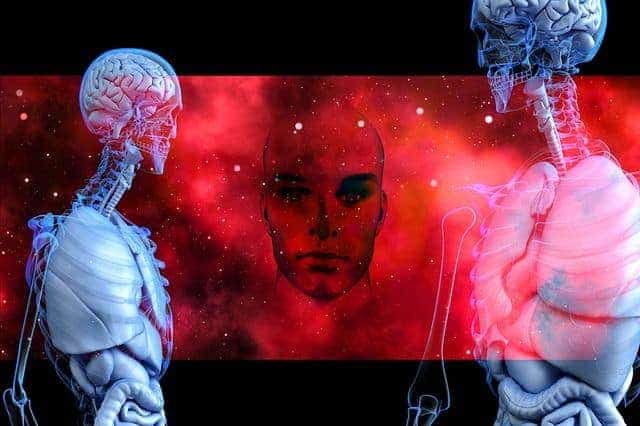The common conceit of science fiction is that artificial intelligence will eventually kill us all. It will become more intelligent than us and then decide that it no longer needs us to function. Almost every representation of artificial intelligence in movies climaxes in a ‘Terminator’ style scenario; AI becomes sentient, works out how to self-replicate, and declares war on the human race. It’s a doomsday scenario, and we lose.
Today, we’d like to imagine another scenario. What happens if artificial intelligence doesn’t turn into a death sentence? What if, instead, it gradually improves our lives and leads the human race into a new golden age? That might not be as exciting an idea if you’re a Hollywood movie producer, but it’s a more comforting thought as AI continues to become more advanced. We state that, as a matter of fact, by the way – artificial intelligence is now progressing at a rate of knots. Some experts believe it will reach the point where it’s equal to human intelligence within ten years.
Ignoring the apocalyptic scenarios, we’ve cast our eye over some of the areas we expect AI to be able to assist us with in the next two years, and here are the places we think you should look out for it.
Medical Diagnosis

How would you feel about talking to a robot instead of a doctor if you felt under the weather? If you’re not too comfortable about the idea, you may soon have to adjust your mindset. Not only is it likely that artificial intelligence will soon play a role in diagnosing patients suffering from a range of medical ailments, but there are signs that AI may even be better at it than some fully trained doctors. When provided with enough information, AI is more reliable than a doctor. It doesn’t make human errors. It can spot a slight anomaly in a pattern of data that a human doctor might miss. It can even pick up on imperfections on an X-Ray that are barely perceptible to the human eye. Artificial intelligence in medicine should result in more accurate diagnoses occurring at an earlier stage.
Gambling

We suspect that most casinos won’t be keen on the idea of artificial intelligence being allowed to gamble. What we’re less clear on is how they intend to stop it. It’s already possible for artificial intelligence to learn how to play casino games. We’re not talking mobile slots here, either. Making a software program that knows how to keep pressing ‘spin’ on a mobile slots game would be elementary. You could make an argument that AI would keep better control of bankroll when playing slots casino than a human being, but the potential use of AI in gambling goes well beyond that. If AI could learn how to play poker, there would likely be no way to bluff it. It would also formulate an algorithm that tells it the statistical likelihood that you’re bluffing. If you like to play poker online, beware. A few years from now, your opponent might be a computer.
Shopping

Very few of us relish the prospect of doing the weekly shopping. The internet has made it easier because we can order online and have our goods delivered to our homes, but we still have to spend our time trawling through page after page of websites looking for the goods we want before placing an order for them. If someone could do that for us – and still guarantee us that we get the things we want – we’d all want them to do it. AI may hold the key. Algorithms that can predict the things we’re likely to buy based on our shopping history already exist – you see them every time you order your shopping now. In Amazon’s unmanned ‘Go’ stores, sensors can detect when an item has been picked up off the shelves and know what those items are. Combine two things, and your smart home of the future will know when you’ve taken the last tin of beans out of the cupboard, and it will simply order you some more.
Self Driving Vehicles

As you may well know, this is already happening. Almost every major car manufacturer is road-testing self-driving cars as we speak, and the technology that underpins them is continually being refined. We’re two years at most away from seeing self-driving cars on the road in everyday life, and we think that’s a good thing. The last thing anyone wants after a long and difficult day is an exhausting drive home. If your car could drive itself safely and securely, all you’d need to is tell it to take you home and then sit back and enjoy the ride. If it’s a long drive, you might even be able to have a nap on the way! That won’t be an option at first, though. Until the technology has been proven to be completely reliable, a human driver will still have to be in a position to take the wheel in the event of an emergency or a technology failure. No matter what vehicle you are driving, it must be equipped with an emergency kit. Here you can find a great car emergency kit for sale.
Investments

The stock market relies on skilled individuals who can see a trend starting or ending and act accordingly. The very best traders act on an hour-by-hour basis, scalping profits during the moments where prices are at their most favorable. Even the very best traders in the world are human, though. They have a maximum reaction speed, and at some point, they have to sleep. Computers have no such limitations. An AI trader could make transactions by the millisecond. Some financial professionals are fearful of this; they believe if aggressive AI trading becomes a reality, the market will rise and crash constantly, and on a level never seen before. Cynics would point out that they have good reason to make such predictions – if AI masters the stock market, their jobs will be obsolete. That’s our summary. No Skynet, no indestructible androids rising and scorching the earth, and no AI super-brain secretly plotting the downfall of humanity. We’d be foolish to say that artificial intelligence doesn’t pose any risk to the human race at all. Still, so long it’s developed responsibly – which all signs suggest it is now – there’s no reason to believe it will become an enemy instead of an ally.

